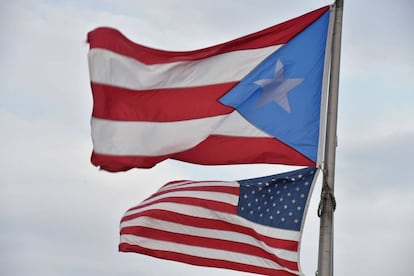Obama signs Puerto Rico debt-relief bill
The US Territory will now be able to restructure its $70 billion debt

President Barack Obama signed a bill into law to help Puerto Rico restructure its $70 billion public debt on Thursday, too late to prevent the US Territory from defaulting on a $2 billion payment due on Friday.
Senate approved the bill after long negotiations between Republicans and Democrats. Conservatives wanted to avoid a plan that might lead to a taxpayer bailout, while Democrats were concerned about the repercussions for November’s elections. Puerto Rico will apply for bankruptcy proceedings similar to the Chapter 9 regulations that protected Detroit from legal action by its creditors in 2013 while it deferred payments and renegotiated its liabilities. The city eventually emerged from bankruptcy a year later.
Puerto Rico has to comply with the same economic requirements and regulations as the rest of the United States while competing with its smaller Caribbean neighbors
But the measures were not applicable in the case of the Caribbean island. In the summer of 2015, Puerto Rico Governor Alejandro García Padilla recognized that Puerto Rico had exhausted its treasury after a decade-long crisis and could no longer shoulder a debt burden that exceeded its Gross Domestic Product (GDP). Puerto Rico began to default on its debts in August 2015. “The people of Puerto Rico need to know that they’re not forgotten, they’re part of the American family,” Obama said before signing the bill into law in the Oval Office. “As the consequence of the inability for them to restructure their debt, you've seen hospitals unable to operate, ambulances shutting down, basic services shutting down, and government workers not being paid. It has brought enormous hardship to Puerto Rico.”
PROMESA, the Puerto Rico Oversight, Management and Economic Stability Act, will task a fiscal control board with significant powers over the administration of the island. It may require Puerto Rico to cut government jobs, sell bonds or repeal minimum wage laws if the island fails to comply with PROMESA terms. Democratic presidential candidate Bernie Sanders has called this level of oversight “colonial.”
Puerto Rico’s problems are due in part to its thorny legal status: it has to comply with the same economic requirements and regulations as the rest of the United States while competing with its smaller Caribbean neighbors. And now it has lost many of the fiscal benefits that made it attractive to foreign investors.
English version by Dyane Jean-François.
Sign up for our newsletter
EL PAÍS English Edition has launched a weekly newsletter. Sign up today to receive a selection of our best stories in your inbox every Saturday morning. For full details about how to subscribe, click here
Tu suscripción se está usando en otro dispositivo
¿Quieres añadir otro usuario a tu suscripción?
Si continúas leyendo en este dispositivo, no se podrá leer en el otro.
FlechaTu suscripción se está usando en otro dispositivo y solo puedes acceder a EL PAÍS desde un dispositivo a la vez.
Si quieres compartir tu cuenta, cambia tu suscripción a la modalidad Premium, así podrás añadir otro usuario. Cada uno accederá con su propia cuenta de email, lo que os permitirá personalizar vuestra experiencia en EL PAÍS.
¿Tienes una suscripción de empresa? Accede aquí para contratar más cuentas.
En el caso de no saber quién está usando tu cuenta, te recomendamos cambiar tu contraseña aquí.
Si decides continuar compartiendo tu cuenta, este mensaje se mostrará en tu dispositivo y en el de la otra persona que está usando tu cuenta de forma indefinida, afectando a tu experiencia de lectura. Puedes consultar aquí los términos y condiciones de la suscripción digital.









































